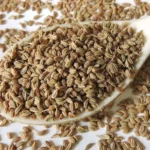Introduction
Vitamin D, often called the “sunshine vitamin,” is a fat-soluble hormone essential for various physiological functions, including bone health, immune support, and mental well-being. Despite its importance, Vitamin D deficiency is a global public health issue, particularly among vegetarians and vegans due to limited dietary sources. But even non-vegetarians aren’t immune to low levels, especially if sun exposure is minimal.
Let’s break down the importance of Vitamin D, where to get it, and why supplementation is crucial, especially for plant-based eaters.
🧬 Why Is Vitamin D So Important?
Vitamin D plays a multifaceted role in the body:
- Calcium and Phosphorus Absorption: It promotes healthy bone mineralization and reduces the risk of rickets, osteomalacia, and osteoporosis.
- Immune Regulation: Enhances innate and adaptive immune responses.
- Mood and Mental Health: Linked to reduced risk of depression and cognitive decline.
🔬 A meta-analysis published in The Lancet Diabetes & Endocrinology (2021) concluded that low levels of Vitamin D are associated with increased risks of autoimmune diseases, including multiple sclerosis and type 1 diabetes.
🌱 Challenges for Vegetarians and Vegans
🌱 The Challenge: Why Plant-Based Eaters Are at Higher Risk
For vegetarians and vegans, maintaining optimal Vitamin D levels can be especially challenging. That’s because Vitamin D is naturally found in only a few foods, and most of those are animal-derived — which are either avoided or completely excluded in plant-based diets.
❌ What’s Off the Menu?
The richest natural sources of Vitamin D include:
- Fatty fish like salmon and mackerel
- Cod liver oil
- Egg yolks
- Beef liver
These options may deliver Vitamin D, but they also carry potential health risks:
🧪 Heavy Metal Contamination: Many of these animal-based sources — especially fatty fish and liver — are prone to accumulating mercury, PCBs (polychlorinated biphenyls), and dioxins, which have been linked to neurological disorders, developmental delays, and even cancer.
🧬 A 2020 report published in Toxics journal confirmed that frequent consumption of fish contaminated with methylmercury can pose serious health hazards, especially to pregnant women and children. (Toxics, 2020)
🥦 1. Plant-Based Sources Are Limited:
- Sun-exposed mushrooms provide vitamin D2, but only in small, inconsistent amounts.
- Fortified foods (like plant milks, cereals, and juices) are helpful, but again, often contain D2, which is less effective and not as long-lasting in the body compared to D3.
⚠️ Vitamin D2 is less stable and less bioavailable, meaning your body doesn’t absorb and utilize it as efficiently as it does D3. (Tripkovic et al., Am J Clin Nutr, 2012)
💊 Why Supplementation Is Essential (Especially with Vegan D3)
Without regular intake of bioavailable Vitamin D3, vegetarians and vegans are at a higher risk of:
- Low bone mineral density
- Muscle weakness and fatigue
- Mood imbalances like seasonal affective disorder
- Weakened immune function
🔍 According to a 2016 study in the American Journal of Clinical Nutrition, vegans and vegetarians consistently show significantly lower serum 25(OH)D levels compared to omnivores — making supplementation not just beneficial, but necessary for long-term wellness.
(Am J Clin Nutr, 2016) (DOI)
✅ The Solution: Vegan D3 from Lichen
Thanks to advances in nutraceuticals, Vitamin D3 from lichen — a symbiotic plant-like organism — is now available. It’s:
- 100% vegan & cruelty-free
- Free from mercury or toxins
- Highly bioavailable and effective
- Environmentally sustainable
🌿 Bottom Line: Relying on animal-based Vitamin D sources not only contradicts plant-based ethics but also introduces risks from heavy metals and environmental contaminants. Fortified foods help, but are rarely enough. A clean, plant-derived D3 supplement is the most reliable and ethical choice for maintaining optimal health.
2. Sunlight Isn’t Always Enough
While our skin produces Vitamin D upon UVB exposure, several factors affect this:
- Use of sunscreen
- Living in high latitudes or pollution-heavy cities
- Darker skin tone (melanin reduces synthesis)
- Age and obesity reduce synthesis efficiency
📘 According to a review in the Journal of Clinical Endocrinology & Metabolism (2018), about 1 billion people globally have insufficient Vitamin D levels, with vegetarians and vegans at higher risk.
🍽️ What About Fortified Foods?
While fortified plant-based milks (like almond or soy milk), orange juice, and cereals help, they often provide inconsistent and low amounts of Vitamin D. Additionally, some are fortified with Vitamin D2 rather than D3, which brings us to a critical distinction.
🧪 Vitamin D2 vs. D3 – What’s the Difference?
- Vitamin D2 (Ergocalciferol): Plant-based, less bioavailable.
- Vitamin D3 (Cholecalciferol): Traditionally sourced from animal lanolin, more potent and bioavailable.
🌿 Vegan D3 derived from lichen is now available and is equally effective, according to a study published in Nutrients (2019), which compared lichen-based D3 to traditional lanolin D3 and D2.
💊 Why Supplementation Is Essential
Given the low dietary intake and unreliable sun exposure, supplementation becomes essential, especially for:
- Vegans and vegetarians with no fortified food intake
- Non-vegetarians during winters or in polluted/urban regions
- Elderly, pregnant women, or people with absorption disorders
Recommended Daily Intake:
| Age Group | Recommended Intake |
|---|---|
| 1–70 years | 600 IU/day |
| >70 years | 800 IU/day |
| Deficient individuals | 1000–2000 IU/day (under supervision) |
🧾 A randomized controlled trial in BMJ (2017) showed that daily or weekly Vitamin D supplementation significantly reduced the risk of acute respiratory infections.
🌞 Tips for Optimizing Vitamin D Levels
- Get 10–30 minutes of midday sun (without sunscreen) 2–3 times/week.
- Include fortified plant-based foods (check for D3).
- Choose supplements wisely – opt for vegan D3 from lichen.
- Test blood levels annually and adjust supplementation accordingly.
Conclusion
Vitamin D deficiency is common across dietary preferences, but vegetarians and vegans are at higher risk due to dietary limitations. Supplementation with bioavailable Vitamin D3, preferably vegan-sourced, is a safe and effective strategy. Regular testing and mindful intake are crucial to maintaining optimal health and preventing chronic conditions linked to Vitamin D deficiency.
Peer-Reviewed References
Holick, M. F. (2007). Vitamin D deficiency. New England Journal of Medicine, 357(3), 266–281. https://doi.org/10.1056/NEJMra070553
Martineau, A. R., et al. (2017). Vitamin D supplementation to prevent acute respiratory infections: systematic review and meta-analysis of individual participant data. BMJ. https://doi.org/10.1136/bmj.i6583
Pilz, S., et al. (2018). Vitamin D and cardiovascular disease prevention. Nature Reviews Cardiology, 15(10), 621–639. https://doi.org/10.1038/s41569-018-0166-y
O’Mahony, L., et al. (2019). Lichen-sourced Vitamin D3 shows equivalent efficacy to animal-derived D3. Nutrients, 11(9), 2110. https://doi.org/10.3390/nu11092110





